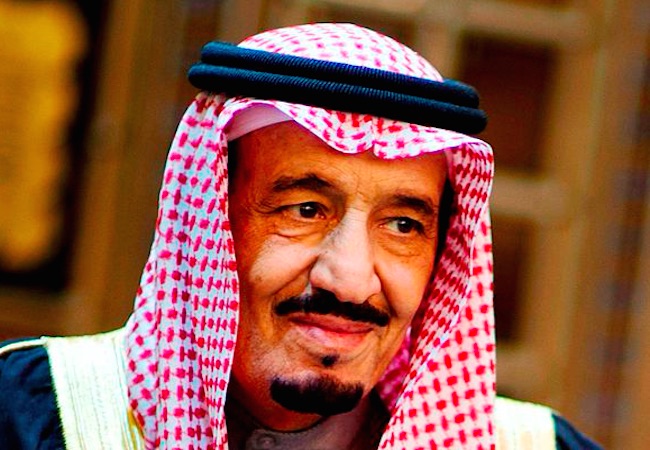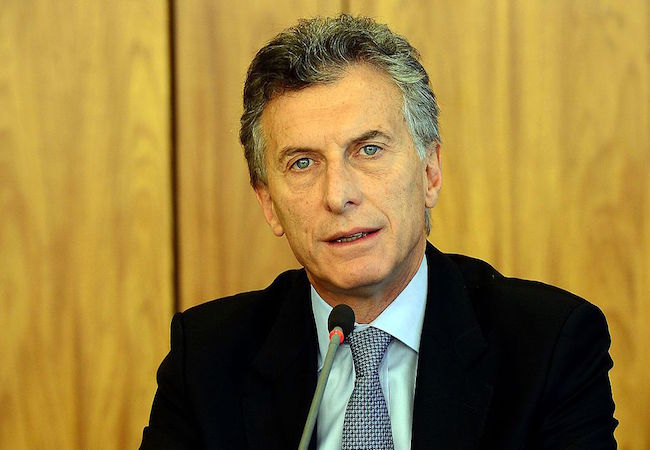Saudi Arabia donates $10 million to WHO to fight coronavirus

Custodian of the Two Holy Mosques King Salman Bin Abdulaziz has issued directives to grant $10 million in financial support to the World Health Organization (WHO) to fight coronavirus. “The Saudi grant was announced in response to the urgent appeal made by the WHO to all countries in its bid to intensify global efforts in combating the spread of coronavirus,” said Dr. Abdullah Al-Rabeeah, advisor at the Royal Court and supervisor general of the Riyadh-based King Salman Humanitarian Aid and Relief Center (KSrelief).
“Saudi Arabia and WHO are working together to combat novel coronavirus (COVID-19), and in support of this effort, the Kingdom has provided $10 million to WHO to take urgent measures to minimize the spread of the disease and to support countries with vulnerable health infrastructures,” said Dr. Al-Rabeeah, in a statement carried by the state-owned Saudi Press Agency (SPA).
Dr. Al-Rabeeah said this royal directive embodies the Kingdom’s noble humanitarian role and reflects its keenness to harness its potential and resources in serving the humanitarian issues in collaboration with the United Nations, its agencies and organizations as well as with the international community. He appreciated this generous gesture from King Salman and the Crown Prince Mohammed Bin Salman, saying that this comes as an extension of the Kingdom’s humanitarian stances during the crises faced by many people around the world.
The Saudi donation comes as the number of cases of novel coronavirus worldwide has crossed 111,000 people in 100 countries and territories with more than 3,800 reported dead. The landmark figure came after Iran reported almost 600 new cases on Monday morning, taking its total number of infections past 7,000. Since the outbreak of the new strain of the coronavirus infection that reportedly started in a food market in the Chinese city of Wuhan in December last year, GCC states have reported a total of 200 cases.
On the regional level, the member states of the six-nation Gulf Cooperation Council (GCC) have taken several preventive measures to spread the virus. In Kuwait, Kuwait’s health ministry confirmed two additional cases, one of a female Kuwaiti citizen who traveled to the country from Iran, and the other of an expatriate who had traveled to Azerbaijan via the UAE on a private visit.
The total number of those infected in the country rose to 64 in Kuwait. Meanwhile, one case has been reported to have fully recovered, Kuwait News Agency confirmed. The health ministry has also refuted fake news doing the rounds on social media regarding an elderly woman succumbing to the coronavirus infection. The ministry urged the public to believe and take information from official sources.
In a bid to try and curb the spread of the contagion, local health authority also urged all travelers coming into Kuwait from seven countries, namely India, Bangladesh, Philippines, Sri Lanka, Syria, Lebanon, and Egypt, to home quarantine themselves for two weeks from the date of departure.
On the other hand, Bahrain’s Ministry of Health urged citizens and residents who have visited Italy, South Korea, Egypt, and Lebanon during the past 14 days to self-isolate immediately, and call 444 or visit the health ministry website to schedule a medical examination, Bahrain News Agency announced. The Ministry further emphasized that citizens and residents who have visited the aforementioned countries should avoid interacting with others, to ensure the health and safety of the community at large. Bahrain has reported a total of 49 cases of the Covid-19 since the outbreak.
Another Gulf state, the UAE recorded 15 new coronavirus cases, taking the total number of infected individuals in the country to 45, the Ministry of Health and Prevention said. A total of seven patients have recovered completely. All citizens and residents were urged to avoid traveling due to the continuing spread of the Covid-19, and in case they did, they would be subject to certain measures including medical checks at the airport and possible home quarantine upon their return, according to the discretion of the competent authorities.
Dubai carrier Emirates announced a waiver policy for all bookings starting from Saturday, March 7, until the end of the month. Passengers who decide to change their travel plans could do so for travel within an 11-month date range in the same booking class without change penalties. With early school closures for spring break in the UAE, the new waiver policy is applicable on tickets issued on or before March 4, 2020, with travel up to May 31, 2020, with rebooking permitted up to June 30, 2020.
On Monday, Saudi Arabia announced that four additional cases of the virus had been detected in the country. The first case was that of a citizen who was in contact with previously announced case in Al-Qatif Governorate; the second and third cases were of Bahraini women coming from Iraq on their way to Bahrain; while the fourth case was of a US resident returning from travel, having passed through the Philippines and Italy before arriving in the kingdom.
The total number of coronavirus cases in Saudi now stands at 15, Saudi Press Agency reported. The previously confirmed cases included three female citizens who had come into contact with previously announced cases that had arrived from Iran and a male citizen who came in from Iran via the UAE. Additionally, the total number of citizens who disclosed their presence in Iran as of Saturday morning reached 128, of whom 26 citizens were currently in Saudi Arabia, 95 citizens were in Iran, and seven citizens were in other countries.
On Monday, Saudi Arabia suspended all travel to and from nine countries that include the UAE, Kuwait, Bahrain, Egypt, Iraq, Lebanon, Italy, South Korea, and Syria. In Oman, the total number of those infected in the sultanate totaled 12. Starting from March 6, Oman Air also announced the removal of all change fees for tickets purchased till May 31, 2020. The Gulf countries are also coordinating efforts with health institutions including the WHO to curb the spread of coronavirus.
China, where the virus first emerged late last year, remains the most affected country with more than 80,000 cases, but experts have expressed hope that the Chinese outbreak has peaked. Governments are scrambling to respond to the outbreak with countries across Europe canceling public gatherings, restricting attendances at sporting events and closing schools – following similar measures in China and other Asian nations.
Italy is battling the deadliest outbreak outside of China with 366 people having died from 7,375 cases, much more deadly than in South Korea, which has seen a similar number of infections but just 51 deaths. The Italian government is attempting to seal off roughly 15 million people in its hard-hit northern regions, forbidding travel around a vast area including the cities of Venice and Milan.




